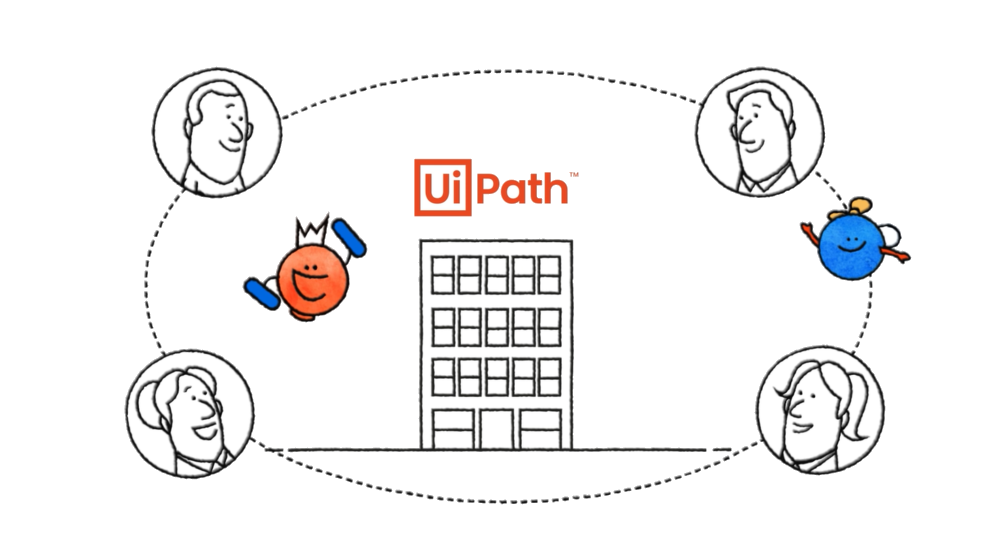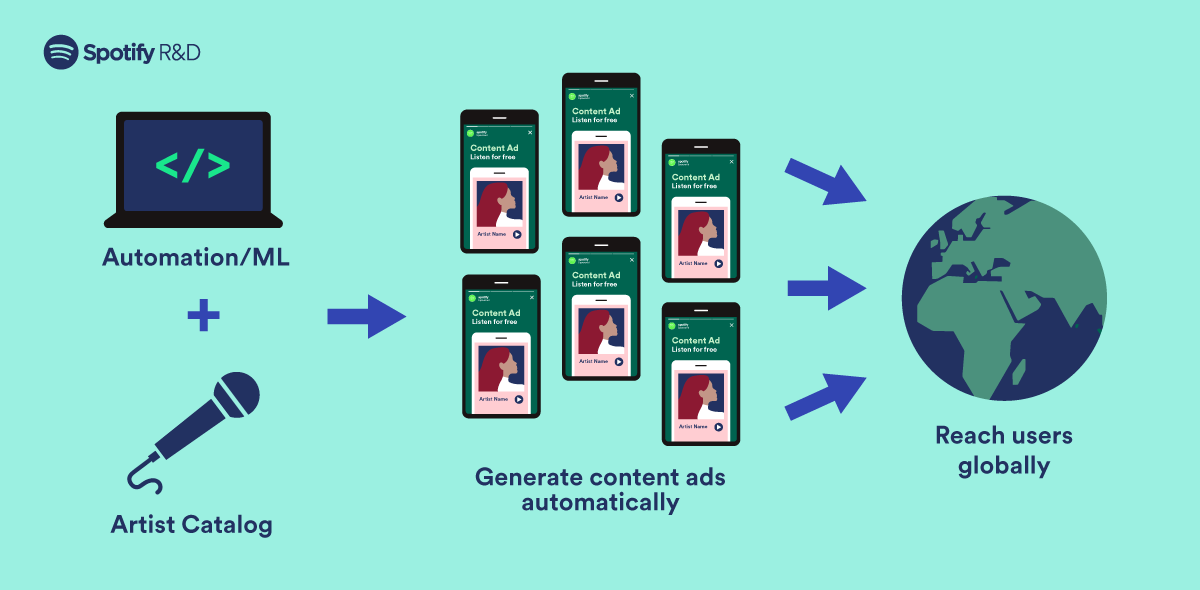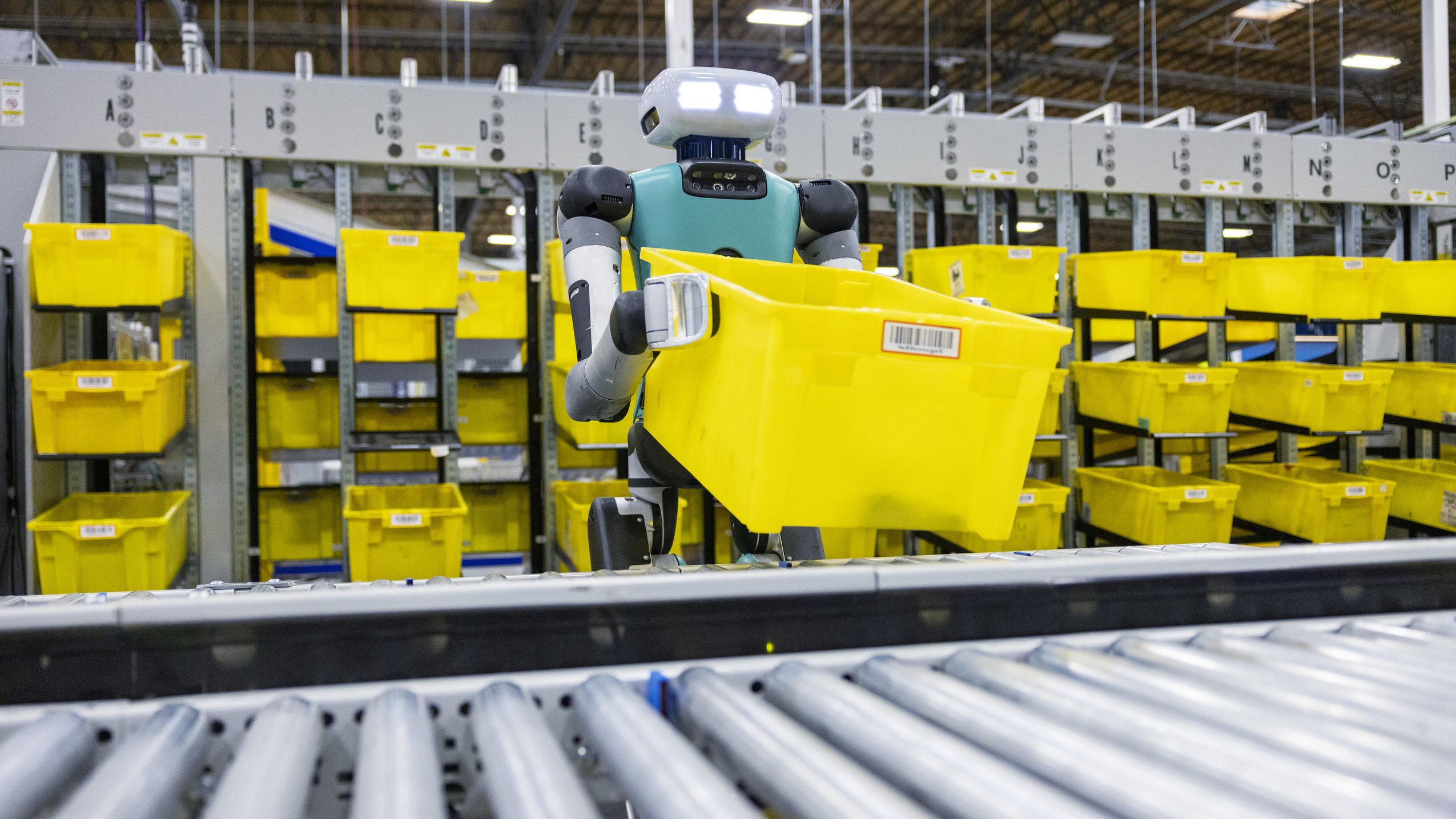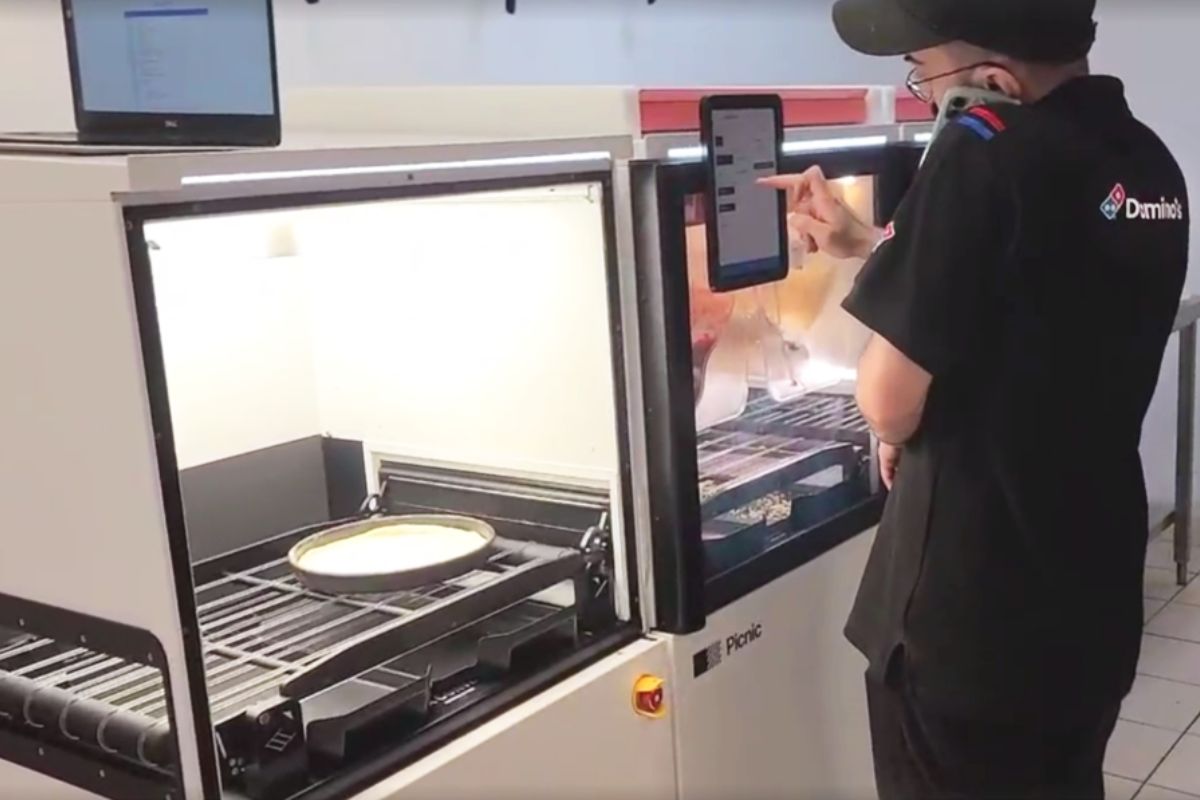Introduction
In today’s competitive landscape, businesses are increasingly turning to artificial intelligence (AI) to streamline operations, reduce costs, and enhance decision-making. AI workflow automation represents one of the most transformative areas in AI adoption. By automating routine tasks, optimizing complex workflows, and enabling more intelligent decision-making, AI-powered systems allow companies to focus on what truly matters—innovation, growth, and customer satisfaction.
At SmartDev, as an ITO company deeply invested in cutting-edge technology, we’ve seen firsthand how AI workflow automation can drive tangible improvements across various industries. In this blog, we share our insights and experience on how businesses can leverage AI workflow automation to boost efficiency, overcome challenges, and prepare for future opportunities.
1. What is AI Workflow Automation?

AI workflow automation refers to the use of AI technologies to automate a range of business processes. These processes can range from simple, rule-based tasks to complex decision-making procedures. Through the application of AI, workflows are not only automated but are made smarter—self-adjusting based on data inputs, providing real-time insights, and even predicting future outcomes.
In essence, AI workflow automation takes routine tasks out of human hands, allowing employees to focus on higher-value activities. The result is faster execution times, reduced human error, and the capacity to scale operations without sacrificing quality.
2. Why Businesses Need AI Workflow Automation
In the face of increasing competition and rapidly changing market conditions, businesses need to act swiftly and efficiently. Traditional workflows often rely heavily on manual interventions, which can introduce delays and errors. AI workflow automation eliminates these bottlenecks, reducing the time and cost associated with repetitive tasks. By automating these processes, businesses gain the agility needed to respond quickly to customer demands, market shifts, and operational challenges.
Moreover, AI automation enhances decision-making. As workflows become data-driven, AI tools can provide actionable insights, offering businesses a more informed view of their operations. For example, in marketing, AI can automate customer segmentation and target campaigns based on predictive models, leading to higher conversion rates. In supply chain management, AI can forecast demand and optimize inventory management, reducing costs and ensuring that the right products are available at the right time.
3. Key Benefits of Automating Workflows with AI

AI automation offers several advantages, from reducing operational costs to enabling more intelligent decision-making. In this part, we highlight how businesses can harness AI to optimize workflows and create a more agile, future-proof organization.
Enhanced Efficiency and Productivity
One of the primary advantages of AI workflow automation is improved efficiency and productivity. By automating repetitive tasks that consume valuable time, businesses can free up their workforce to focus on more strategic and high-value activities. This leads to increased productivity, as employees can utilize their skills and expertise in areas that require human intervention.
Cost Savings
AI workflow automation can result in significant cost savings for businesses. By automating manual tasks, businesses can reduce labor costs and allocate resources more efficiently. The time and effort saved through automation can be redirected toward revenue-generating activities or innovation initiatives. Additionally, AI automation minimizes errors, reducing the need for costly rework or fixes. With fewer mistakes, businesses can save both time and money in the long run.
Faster Time-to-Market
In today’s fast-paced business landscape, speed is crucial for success. AI workflow automation enables businesses to accelerate their time-to-market by streamlining processes and eliminating bottlenecks. By automating labor-intensive tasks, businesses can expedite their operations, allowing them to respond quickly to market demands and gain a competitive advantage.
Improved Data Analysis and Decision-Making
Data is an asset for businesses, and AI workflow automation empowers organizations to unlock the full potential of their data. AI tools can analyze vast amounts of data in real time, providing valuable insights and enabling data-driven decision-making. By automating data processing and analysis, businesses can make informed decisions faster, leading to better outcomes and improved profitability.
Streamlined Processes and Reduced Complexity
Complex workflows and processes can hinder business operations and lead to inefficiencies. AI workflow automation simplifies and standardizes processes, reducing complexity and optimizing resource allocation. By automating repetitive tasks, businesses can create streamlined workflows that scale effortlessly, improving overall operational efficiency.
Enhanced Customer Experiences
AI workflow automation can significantly impact customer experiences by delivering seamless and personalized interactions. By automating processes such as lead generation, qualification, and customer segmentation, businesses can provide timely and relevant communication to their customers. This leads to enhanced customer satisfaction, loyalty, and ultimately, business growth.
Types of AI Workflow Automation
AI offers a range of automation types, each designed for specific tasks within an organization. This section breaks down the different kinds of AI workflow automation, from basic rule-based systems to advanced predictive models, and explores their applications in real-world business scenarios.
1. Predictive Analytics Automation
Predictive analytics automation leverages AI and machine learning to analyze historical data and identify patterns and trends. By combining statistical algorithms and data analysis, businesses can make accurate predictions and forecasts. This type of automation is particularly useful for improving profitability, optimizing operations, and growing the customer base.
Example: Netflix

Source: Maven Analytics
Netflix is a prime example of a company using predictive analytics to enhance user experience and streamline content delivery. Netflix uses predictive analytics to analyze patterns in user behavior and predict future preferences. This data is then used to automate the recommendation process, ensuring that each user receives personalized content suggestions, driving engagement, and improving customer satisfaction.
This predictive automation not only improves the user experience but also boosts Netflix’s retention rates and overall customer lifetime value, making it a great example of how predictive analytics can be used in AI workflow automation to optimize customer-centric operations.
2. Cognitive Automation
Cognitive automation combines AI and process automation to enhance business outcomes. It involves using AI techniques to mimic human intelligence, enabling systems to understand, interpret, and make decisions based on data. Cognitive automation tools can capture and process data, automate decision-making, and scale automation effectively.
Example: IBM Waston

Source: LinkedIn
IBM Watson Health is an excellent example of cognitive automation in action. Watson’s cognitive capabilities allow it to process large volumes of unstructured data, such as medical records, clinical notes, and research papers, to generate insights that support decision-making. Cognitive automation tools like Watson enhance the capabilities of healthcare professionals by acting as a decision-support system.
Cognitive automation in healthcare reduces the time required for diagnosis, improves the accuracy of clinical decisions, and enhances patient outcomes. It also enables healthcare providers to focus on more complex, high-value tasks by automating the labor-intensive process of data analysis.
3. Rules-based Automation (RPA)
Rules-based automation, also known as Robotic Process Automation (RPA), applies predefined rules to automate repetitive tasks. RPA platforms mimic human intelligence by storing, sorting, and manipulating data according to predefined rules. This type of automation is widely used across industries to automate tasks such as data entry, form filling, and data extraction.
Example: UiPath in Banking

UiPath’s Robotic Process Automation (RPA) platform has been widely adopted in various industries, with a notable case in the banking sector. With UiPath, the bank created robots that mimic human actions, such as data entry, document processing, and validation. These robots are programmed with a set of business rules and can perform tasks faster and more accurately than humans.
By automating repetitive tasks, the bank significantly reduced operational costs, minimized human error, and improved processing speed. Employees could then focus on more strategic tasks, adding value to the organization in ways that go beyond simple task completion.
4. Process Mining Automation
Process mining involves analyzing business processes to uncover inefficiencies and areas for improvement. It uses AI to track how processes are performed in real time, allowing businesses to identify bottlenecks and optimize workflows. By leveraging process mining, organizations can automate not only specific tasks but entire workflows, creating streamlined operations that are continuously refined for efficiency.
Example: Siemens

Source: Reauters
Siemens, a global technology company, implemented process mining automation to optimize its manufacturing workflows. Process mining involves analyzing event logs from IT systems to visualize workflows and uncover inefficiencies. Siemens used this approach to track the flow of materials, orders, and resources across its manufacturing facilities.
By identifying inefficiencies, Siemens was able to streamline operations, improve resource allocation, and reduce production delays. Process mining automation empowered Siemens to make data-driven decisions that led to optimized workflows and enhanced productivity.
5. Hyper automation
Hyper automation is the combination of multiple automation technologies, including RPA, AI, and machine learning, to automate as many business processes as possible. This holistic approach enables businesses to achieve end-to-end automation across all functions, from data extraction to decision-making. In our projects, we’ve seen that hyper-automation can drastically reduce manual effort, improve service delivery times, and provide better insights into business performance.
Example: Coca-Cola and SAP Intelligent RPA

Source: The Intercept
Coca-Cola adopted SAP’s Intelligent Robotic Process Automation (RPA) solution to create a hyper automation framework across its global operations. Coca-Cola combined RPA with AI to automate end-to-end processes across multiple departments, including finance, customer service, and supply chain management. This involved automating everything from invoice processing to customer inquiries.
Coca-Cola’s hyperautomation efforts resulted in faster processing times, enhanced accuracy, and improved customer service. It also reduced operational costs and allowed Coca-Cola to scale operations globally without adding significant overhead.
6. Generative AI Automation
Generative AI goes beyond traditional automation by enabling machines to create new content, ideas, or solutions autonomously. Whether it’s generating reports, designing marketing materials, or even creating new products, generative AI offers a way for businesses to scale creativity. We’ve worked on implementing AI solutions that allow businesses to automate content creation, helping them produce personalized marketing materials at scale.
Example: OpenAI’s GPT-3 for Content Generation

Source: LinkedIn
OpenAI’s GPT-3 has become a key tool for generative AI automation, especially in content creation. Generative AI models like GPT-3 are trained on vast amounts of text data and can generate human-like content based on prompts. Businesses use GPT-3 to create engaging, SEO-optimized articles, marketing materials, and customer communications with minimal human intervention.
Generative AI helps companies save time and costs on content creation while maintaining high-quality output. It also allows businesses to scale their content production, keeping up with the demands of digital marketing without sacrificing creativity or relevance.
7. Workflow Orchestration Automation
Workflow orchestration brings together various automated processes into a unified workflow that can be managed seamlessly. It integrates multiple systems, ensuring that tasks are completed in the right order and with the right inputs. Workflow orchestration is particularly beneficial for organizations with complex workflows across departments. We’ve used orchestration to help businesses improve cross-functional collaboration, enabling different systems to communicate and work together efficiently.
Example: Spotify

Source: Spotify Engineering
Spotify uses workflow orchestration automation to manage and optimize its complex music streaming operations. Spotify uses AI-driven workflow orchestration to automatically trigger and coordinate tasks across multiple platforms, such as recommendation algorithms, content management systems, and analytics tools. This ensures that all parts of the system work in harmony without requiring manual intervention.
With workflow orchestration, Spotify can deliver a highly personalized experience to users while maintaining operational efficiency. The automation of complex processes allows the company to scale its service to millions of users globally without compromising quality or speed.
8. Decision Automation
Decision automation uses AI to make informed decisions autonomously, based on pre-defined rules or real-time data analysis. This type of automation is especially beneficial for fast-paced industries, where decisions need to be made quickly and accurately. We’ve seen clients implement decision automation in customer service, where AI bots can autonomously resolve queries, and in finance, where AI tools assess risks and determine the creditworthiness of loan applicants.
Example: Amazon

Source: Amazon
Amazon uses decision automation extensively, particularly in its inventory management and pricing strategies. Amazon’s decision automation systems use machine learning algorithms to process massive amounts of data and make real-time decisions on pricing, product recommendations, and even warehouse stock levels. This automation allows the company to respond quickly to changing market conditions.
Decision automation at Amazon leads to better pricing strategies, optimized inventory management, and improved customer satisfaction. It enables Amazon to remain competitive by making decisions faster and more accurately than human operators.
9. Event-driven Automation
Event-driven automation triggers specific actions based on events or data changes, such as a customer interaction or system alert. This type of automation is highly responsive and allows businesses to react in real time. For example, in customer service, event-driven automation could send an immediate response to a customer inquiry, or in manufacturing, it could trigger an alert when a production machine goes offline.
Example: Domino’s Pizza

Source: Foodservice Equipment Reports
Domino’s Pizza utilizes event-driven automation to streamline its pizza delivery process. Domino’s uses AI to monitor and react to real-time events such as incoming orders, the status of pizzas being prepared, and delivery timing. Based on these events, the system adjusts workflows to optimize delivery routes, ensure customer satisfaction, and reduce wait times.
Event-driven automation improves Domino’s operational efficiency and customer experience. By automating responses to real-time events, Domino’s can ensure fast and accurate deliveries while enhancing customer satisfaction.
Core Components of AI Workflow Automation
AI workflow automation is not a single technology, but a system composed of several interdependent components. Each component plays a crucial role in ensuring that the entire process operates efficiently and intelligently. These core elements work together to enable businesses to automate tasks, optimize workflows, and make better decisions—all while ensuring scalability and security. Let’s break down why each of these components is essential to AI workflow automation.

1. Data Integration: The Foundation of AI
AI algorithms rely on vast amounts of data to make decisions, learn patterns, and predict future outcomes. However, data is often stored in different systems and formats, making it difficult for AI to access and analyze it effectively.
Data integration is the process of consolidating data from disparate sources into a unified system that AI can interact with. Whether it’s customer data, transactional data, or operational data, integrating this data ensures that AI has the complete picture to make informed decisions. Without seamless data integration, AI tools would be isolated, leading to incomplete insights and missed opportunities.
For example, in a supply chain automation scenario, data integration from inventory management systems, sales data, and external market trends is necessary for the AI to predict demand accurately and make supply chain decisions in real time.
2. AI-Powered Decision Making: Automating Smarter Choices
One of the key reasons businesses turn to AI is to make decisions faster and more accurately than humans can. However, decision-making isn’t just about automating simple tasks—it’s about allowing AI to make informed, intelligent choices that drive business value.
This component enables AI to analyze large datasets and apply complex algorithms to make decisions autonomously. These decisions might involve customer service actions, inventory management, fraud detection, or even financial trading. AI decision-making improves speed, accuracy, and consistency, allowing businesses to react in real-time without waiting for human intervention.
For example, in customer service, AI can automatically prioritize support tickets based on urgency and context, ensuring high-priority issues are addressed first, all while learning over time to improve decision accuracy.
3. Intelligent Task Allocation: Optimizing Resource Utilization
AI workflow automation often involves a mix of both human and machine tasks. In many organizations, various processes require the collaboration of AI and employees, and efficiently assigning tasks to the right resource is key to maximizing efficiency.
Intelligent task allocation uses AI to analyze factors such as employee skills, workload, and availability to assign tasks to the most appropriate resource—whether it’s a human worker, an AI system, or a hybrid solution. The goal is to ensure that work is distributed in the most efficient and effective way possible, reducing bottlenecks and minimizing human error.
For instance, in a marketing campaign automation, AI could decide which creative task is best suited for a human designer based on their skills, while automating data analysis and report generation without involving a human.
4. Process Monitoring and Optimization: Ensuring Continuous Improvement
Automation isn’t a set-it-and-forget-it solution. For AI workflows to remain efficient, they must be continuously monitored and optimized to adapt to changing conditions, new data, or evolving business needs.
AI systems are equipped with monitoring capabilities that track key performance indicators (KPIs) and workflow progress in real time. These systems gather insights into how tasks are being executed, identify any potential inefficiencies or delays, and suggest or implement improvements. Optimization ensures that workflows continue to operate at peak performance and that the AI adapts to new situations, processes, or data inputs.
For example, in an automated procurement system, AI might track the time taken to process orders, flag inefficiencies, and suggest process improvements, ensuring that inventory levels and supplier relationships are always optimized.
5. Human-in-the-Loop (HITL): Leveraging Human Expertise Where Necessary
While AI can handle many tasks autonomously, there are still areas where human judgment and expertise are invaluable. AI systems may struggle with complex, nuanced decisions that require context, empathy, or ethical considerations.
HITL ensures that, when necessary, human intervention is part of the AI workflow. This component involves designing workflows where AI makes the initial decision or suggestion, but a human verifies or fine-tunes the final decision. It creates a balance between automation and human oversight, ensuring that the system remains robust in situations where human expertise is required.
For instance, in a loan approval system, AI can evaluate creditworthiness based on data, but a human agent may need to step in to handle exceptional cases or review for ethical concerns such as bias in the data.
6. Security and Compliance Automation: Safeguarding Data and Ensuring Compliance
As organizations become more data-driven, security and regulatory compliance become increasingly complex. Automation can help maintain the necessary standards for security and compliance, particularly as regulations evolve over time.
AI systems are capable of monitoring security protocols in real-time, identifying any vulnerabilities, and automating compliance checks. This is crucial in industries where compliance is non-negotiable, such as finance, healthcare, or any business handling sensitive data. By automating these aspects, businesses can mitigate risks, prevent breaches, and ensure adherence to legal standards without having to manage everything manually.
For example, AI-powered systems can automatically monitor transactions for fraudulent activity, instantly flagging suspicious transactions based on predefined compliance rules.
Why These Core Components Matter Together
Each of these components is crucial on its own, but they are even more powerful when working in tandem. Data integration enables AI to have access to the right information; AI-powered decision-making makes it possible to act on that data autonomously. Task allocation ensures the right resources are applied to the right tasks, while continuous monitoring and optimization improve efficiency. HITL keeps the workflow aligned with human values and judgment, and security/compliance automation ensures the integrity of data and business practices.
When integrated properly, these components create a self-sustaining, intelligent ecosystem where workflows can evolve, adapt, and become more efficient over time. This is the true power of AI workflow automation: the synergy between each component allows businesses to optimize operations, boost productivity, and remain competitive in an increasingly digital world.
Use Cases Across Industries
AI workflow automation is being applied across a variety of industries, each with unique challenges and opportunities. This section explores how AI automation is being used in sectors like marketing, healthcare, finance, and manufacturing, showcasing its versatility.
1. Marketing and Customer Support
AI workflow automation can revolutionize sales and marketing processes, resulting in increased revenue and customer satisfaction. Automating lead generation and qualification can help sales teams prioritize leads and close deals more efficiently. AI tools can also assist in customer segmentation and targeted campaign creation, enabling businesses to provide personalized experiences to their customers.
Subsequently, AI-powered chatbots and virtual assistants are transforming the customer service landscape. By automating customer inquiries and providing quick and accurate responses, businesses can deliver seamless customer experiences. AI chatbots can handle routine queries, freeing up human agents to focus on more complex and high-value interactions.
2. Healthcare and Pharma
In the healthcare industry, AI workflow automation can enhance patient care, optimize clinical workflows, and improve operational efficiency. From automating appointment scheduling and patient data analysis to assisting in medical diagnostics, AI-powered solutions can drive better health outcomes and streamline healthcare delivery.
3. Finance and Insurance
AI workflow automation can revolutionize finance and accounting processes by automating tasks such as invoice processing, expense management, and financial reporting. By eliminating manual data entry and repetitive calculations, businesses can reduce errors, improve compliance, and enhance financial decision-making.
4. Logistics and Manufacturing
AI workflow tools can streamline manufacturing processes and significantly boost efficiency. They can enhance quality control by identifying defects in products, perform predictive maintenance to avoid downtime, and automate inventory management to prevent shortages. By automating these critical tasks, businesses can improve production output, reduce costs, and deliver high-quality products to customers.
5. Human Resources
Lastly, AI workflow automation can streamline HR processes such as recruitment, employee onboarding, and performance management. By automating repetitive administrative tasks, HR professionals can dedicate more time to strategic initiatives such as talent development and employee engagement. AI tools can help in candidate screening, resume parsing, and even employee sentiment analysis.
How to Choose the Right AI Workflow Tool
Choosing the right AI workflow tool can be overwhelming, but with SmartDev’s expertise, we help businesses make informed decisions. This section walks you through the key factors to consider when selecting an AI workflow automation tool that meets your business needs.

1. Identify Your Needs:
Clearly define your business objectives and identify which workflows need automation. Understanding your specific needs will help you select the best AI tools for your organization.
2. Evaluate Features
Look for AI tools with features that directly address your business requirements. Whether it’s predictive analytics, cognitive automation, or decision-making capabilities, the right features will ensure success.
3. Consider Integration and Scalability
Choose AI tools that can integrate with your existing systems and scale as your business grows. This ensures a smooth transition and long-term success.
4. User Experience and Support
Select tools that offer an intuitive user experience and robust support. Easy-to-use platforms can ensure higher adoption rates within your team.
5. Cost vs. Value
While cost is a factor, focus on the value the tool will bring to your business. Consider the long-term ROI and how automation can improve operational efficiency and customer experience.
6. Security and Compliance
Ensure that the AI tools you select adhere to security standards and regulatory compliance. This will mitigate risks associated with data privacy and security breaches.
7. Vendor Reputation and Case Studies
Look at the vendor’s reputation and review case studies to see how the tool has been implemented successfully in similar businesses.
8. AI Training and Adaptability
The AI tool should be adaptable to your business’s needs and easily trainable as your processes evolve. This flexibility is critical for long-term success.
9. Collaboration Features
Consider tools that offer collaboration features, allowing your team to work together seamlessly while automating tasks.
10. Emerging Trends to Consider
Keep an eye on emerging trends in AI, such as low-code platforms, to ensure that your tools are future-proof and aligned with the latest innovations.
How to Implement AI Workflow Automation
Implementing AI workflow automation may sound daunting at first, but with the right approach, it can be a smooth and rewarding process. Whether you’re just starting to explore AI or you’re ready to make the leap, following a clear, structured plan is key to success. Here’s a step-by-step guide on how to implement AI workflow automation in your business:

1. Setting Automation Goals: Define What You Want to Achieve
Before diving into the tools and technologies, it’s important to understand why you’re automating in the first place. Ask yourself: what are the pain points or inefficiencies in your current workflows that you want to address? Do you want to improve customer service response times, reduce manual data entry, or optimize your supply chain?
Setting clear, specific goals will help you stay focused and guide your decisions throughout the process. For instance, you might set a goal to automate 30% of your administrative tasks within six months or improve the accuracy of your sales forecasting by 20%.
2. Selecting the Right Tools
Once you’ve defined your goals, the next step is to choose the AI tools that will help you achieve them. Think of it like choosing the right tools for a DIY project—different tools serve different purposes. Here’s what to consider when selecting the right AI solutions:
- Task Focus: What tasks are you automating? For example, if your focus is on customer support, you might need a chatbot or AI-driven ticketing system. If you’re automating inventory management, you’ll need a predictive analytics tool.
- Ease of Integration: How easily will the AI tool fit into your existing systems? The best tools will integrate smoothly with your current software, whether that’s CRM, ERP, or project management tools.
- Scalability: Choose a tool that can grow with your business. AI tools that scale can accommodate increasing demands and additional tasks as your operations expand.
If you’re not sure where to start, SmartDev offers consulting services that can help you navigate this process and select the best solution for your specific needs.
3. Best Practices for Smooth Implementation
Implementing AI workflow automation requires a bit of planning and coordination, but following these best practices will ensure a smooth transition:
- Start Small: It’s tempting to automate everything at once, but starting small is often the best approach. Pick one or two workflows to automate first—perhaps a repetitive task that takes up a lot of time. This allows you to test and refine the process without overwhelming your team.
- Involve the Right People: Involve key stakeholders early on. This includes your IT team, department heads, and any employees who will directly interact with the AI systems. Their input is essential in ensuring the tools are user-friendly and address actual business needs.
- Train Your Team: Even though AI is designed to make things easier, your team will need some training to get the most out of the new systems. Set aside time for training sessions to familiarize everyone with the tools and how to use them effectively.
- Measure Success: Once your AI systems are in place, monitor their performance regularly. Are they meeting your goals? Are there areas where the system could be improved? Use analytics to measure the impact of the automation and adjust where needed.
4. Continuously Improve: Keep Iterating and Optimizing
AI is all about learning and evolving. Once your automation systems are up and running, don’t treat them as “set it and forget it” solutions. Instead, continuously evaluate how well the workflows are performing and look for opportunities to improve.
- Gather Feedback: Regularly ask employees and users about their experiences with the AI systems. Are there areas where things could be streamlined further? Are there new tasks that could be automated?
- Refine Processes: As you gather feedback, refine your processes to make the automation even smarter. AI tools can be trained and adjusted, meaning they can become more efficient and accurate over time.
- Stay Updated: The field of AI is rapidly evolving. New technologies and updates to existing tools are constantly being released. Stay informed about new developments and consider upgrading your tools when it makes sense for your business.
Where Should You Start?
If you’re still unsure where to begin, don’t worry—you’re not alone. The first step is simply to get a clearer idea of which areas in your business could benefit from automation. At SmartDev, we work with businesses of all sizes to identify the most impactful processes to automate and guide you through each step of the implementation process.
Remember, AI workflow automation isn’t about replacing your workforce—it’s about empowering your team to focus on more strategic and creative tasks while the AI handles the repetitive, time-consuming ones. Start small, stay focused on your goals, and continuously improve. With the right approach, AI can become a valuable ally in driving efficiency and growth for your business.
Challenges and How to Overcome Them
Despite the immense potential of AI workflow automation, there are challenges that businesses must overcome. In this section, we highlight common roadblocks and offer actionable strategies to ensure successful automation adoption.

1. Data Quality and Availability
AI algorithms require high-quality and reliable data for training and accurate decision-making. Data collection, cleaning, and management can be complex, especially in heavily regulated industries like healthcare. Organizations must invest in robust data management strategies to ensure data quality and availability for AI automation.
How to Overcome It: To address these challenges, organizations should establish comprehensive data governance strategies that ensure data is consistently accurate, clean, and accessible across the organization. Leveraging automated data cleaning tools can streamline data preparation while adopting cloud-based solutions or data lakes can facilitate easier access to large volumes of structured and unstructured data. By investing in a well-managed data pipeline, businesses can ensure their AI models are trained on reliable data, resulting in more accurate and actionable insights.
2. Skilled Talent
Implementing AI workflow automation requires expertise in AI technologies and data science. However, there is a shortage of skilled professionals in these domains. Organizations must invest in upskilling their workforce or collaborate with external experts to bridge the talent gap and ensure successful implementation.
How to Overcome It: To tackle this issue, organizations should focus on upskilling their existing workforce. This can be achieved by offering training programs, certifications, or workshops that enhance employees’ knowledge of AI technologies and automation tools. Additionally, businesses can collaborate with educational institutions, AI service providers, or consultants to bridge the skills gap. Hiring external experts or AI consultants on a project basis can also provide the expertise needed for successful implementation without the long-term commitment of full-time hires. By fostering a culture of continuous learning and collaboration, businesses can build a sustainable foundation for AI workflow automation.
3. Integration with Existing Systems
Integrating AI workflow automation with existing systems can be challenging, especially if organizations have complex IT infrastructures with multiple software applications. Seamless integration is crucial for data flow and process optimization. Organizations should choose AI workflow solutions that offer compatibility and easy integration with existing systems.
How to Overcome It: To mitigate integration challenges, businesses should look for AI workflow solutions that are designed with flexibility and compatibility in mind. Opting for cloud-based solutions or those with open APIs can simplify the integration process and facilitate better communication between various systems. Additionally, businesses should involve IT teams early in the process to ensure that AI tools are compatible with existing infrastructure. By selecting AI solutions that prioritize easy integration, businesses can avoid costly disruptions and streamline their automation efforts. Furthermore, adopting a modular approach—where AI tools are implemented gradually—can help ease the transition and reduce the risk of integration-related issues.
4. Ethical Considerations
As AI becomes more prevalent in business processes, ethical considerations arise. Organizations must ensure that AI automation is implemented responsibly and ethically, considering factors such as fairness, bias, and privacy. Transparency and accountability in AI decision-making are crucial to build trust with customers and stakeholders.
How to Overcome It: To address ethical challenges, businesses must implement transparent, fair, and accountable AI practices. This includes regularly auditing AI models for bias, ensuring that AI decisions are explainable, and promoting ethical AI development within the organization. Establishing clear guidelines around AI ethics and building a governance framework to oversee AI projects can help mitigate ethical risks. Additionally, training teams on responsible AI use and involving stakeholders in the decision-making process ensures that AI solutions are aligned with broader ethical standards.
5. Maintaining Security and Compliance
AI workflow automation can introduce new security vulnerabilities and regulatory compliance risks. Ensuring that AI systems comply with relevant data protection laws, such as GDPR or HIPAA, and that they are secure from cyber threats, is a crucial concern for many organizations, particularly in industries like finance, healthcare, and e-commerce.
How to Overcome It: To maintain security and compliance, organizations must adopt a proactive security framework that includes strong encryption, data protection protocols, and regular system audits. Businesses should also ensure that AI systems are designed with privacy by default and that they adhere to all applicable regulatory standards. Partnering with legal and compliance experts to review AI workflows can ensure that AI automation processes meet both internal and external requirements. By implementing robust security practices and staying up-to-date on changing regulations, organizations can protect themselves from compliance violations and cyber threats.
Future Trends in AI Workflow Automation
As AI technology continues to advance, the future of AI workflow automation holds tremendous potential. Innovations and emerging trends are shaping how businesses will leverage automation to drive efficiency, productivity, and smarter decision-making. In this section, we explore some key trends that organizations should keep an eye on in the coming years.
Trend No.1: No-Code and Low-Code Solutions
One of the most significant trends in AI workflow automation is the rise of no-code and low-code platforms. These tools enable business users—who may not have technical expertise—to build, customize, and deploy AI-powered workflows without writing extensive code. This democratization of AI allows non-technical employees to take an active role in automation initiatives, accelerating development cycles and reducing the dependence on IT teams.
What’s Driving This Trend: The demand for faster implementation and greater agility in businesses has made no-code and low-code platforms a valuable solution. These platforms provide user-friendly interfaces, pre-built templates, and drag-and-drop functionalities, making it easier for businesses to automate processes quickly. By reducing the complexity of workflow automation, businesses can implement AI solutions with minimal friction and ensure that automation is aligned with specific departmental needs.
Why It Matters: For businesses, no-code and low-code solutions represent a powerful way to scale AI adoption across different teams without heavy reliance on external developers or consultants. These tools will also encourage innovation within teams, empowering employees to create solutions that directly address their unique challenges.
Trend No.2: Integration of Generative AI
Generative AI, particularly in areas like natural language processing (NLP) and machine learning, is revolutionizing how businesses can automate complex workflows. By enabling AI systems to generate content, code, and even new ideas based on learned patterns, businesses are finding new opportunities to automate tasks that were previously manual and time-consuming.
What’s Driving This Trend: Advancements in large language models (like GPT and similar technologies) have made it possible for AI systems to understand and generate human-like content, from text and images to designs and code. The integration of generative AI into workflow automation can enable businesses to automate more complex tasks, such as document creation, content generation, customer support responses, and even creative design work.
Why It Matters: Generative AI will expand the scope of automation beyond routine, data-driven tasks to include more creative and decision-making roles. This will enable organizations to save time and resources on tasks that require creativity or human input while allowing employees to focus on higher-value work. The potential for AI to generate new ideas, suggestions, and solutions will enhance innovation and provide businesses with a competitive edge in their industries.
Trend No.3: AI Predictive Analytics
AI-powered predictive analytics is transforming how businesses approach decision-making by leveraging historical data and machine learning algorithms to predict future trends, behaviors, and outcomes. In the context of workflow automation, predictive analytics can optimize business processes by forecasting demand, identifying bottlenecks, and making proactive adjustments to workflows.
What’s Driving This Trend: The growing availability of big data, coupled with advances in machine learning algorithms, has made predictive analytics a powerful tool for businesses across industries. With predictive analytics integrated into AI workflow automation, organizations can anticipate challenges before they arise, fine-tune processes, and improve efficiency with data-driven insights.
Why It Matters: AI predictive analytics will enable businesses to not only automate tasks but also optimize workflows in real-time based on evolving conditions. This proactive approach to automation allows organizations to stay ahead of potential disruptions and make smarter, data-backed decisions. Predictive analytics will also enhance customer experience by anticipating needs and personalizing interactions based on individual behavior patterns, further boosting efficiency and satisfaction.
Conclusion and Actionable Steps
AI workflow automation is not just a passing trend; it’s a transformative tool that can redefine how businesses operate and compete in an increasingly digital world. Whether you’re aiming to improve efficiency, reduce operational costs, or enhance decision-making, adopting AI in your workflows can position your business for long-term success. In this conclusion, we’ll guide you through why now is the right time to start, provide a checklist for getting started, and offer insights on how to leverage AI for sustainable growth.
Why Start Now
The future of work is rapidly changing, and AI workflow automation is at the heart of this transformation. The potential to automate complex workflows, gain actionable insights, and make faster, more accurate decisions is too significant to ignore. However, businesses that hesitate to adopt AI risk falling behind competitors who are already embracing these technologies.
We understand the urgency and the challenges that businesses face when integrating AI solutions. That’s why we believe now is the best time to begin your AI journey. The technology has matured, and the benefits of automation—from cost savings to improved operational efficiency—are already visible across industries.
Checklist for Getting Started
Getting started with AI workflow automation can seem overwhelming but breaking it down into manageable steps can help ensure a smooth transition. Here’s a checklist to help you get started on the right track:
- Assess Your Needs
- Define Clear Objectives
- Choose the Right Tools
- Data Quality and Management
- Build or Upskill Your Team
- Plan for Integration
- Monitor and Optimize
However, at SmartDev, we provide end-to-end support for AI automation projects—from initial consultation and AI tool selection to implementation and optimization. Our experienced team can help you assess your current workflows and integrate AI technologies seamlessly, ensuring a successful deployment.
AI isn’t just about short-term gains; it’s a long-term investment that can drive sustainable growth. SmartDev’s expertise in AI implementation can help you navigate this journey, ensuring that your automation solutions evolve with your business needs. Let’s work together to future-proof your operations.
References
- Generative AI: Transforming Content Creation | OpenAI
- Effectively Harnessing AI And Workflow Automation To Improve The Customer Experience | Forbes
- AI Workflow Automation: Top Tools and Strategies to Get Started | Wizr.ai
- A Comprehensive Guide to AI Workflow Automation in 2024 | N8N
- Top 5 AI Workflow Automation Tools to Eliminate Manual Work | Soft Kraft
- How to Set Up AI Automated Workflows | TeamAI
- What your business can learn from Netflix’s AI algorithms | Studio Vi







